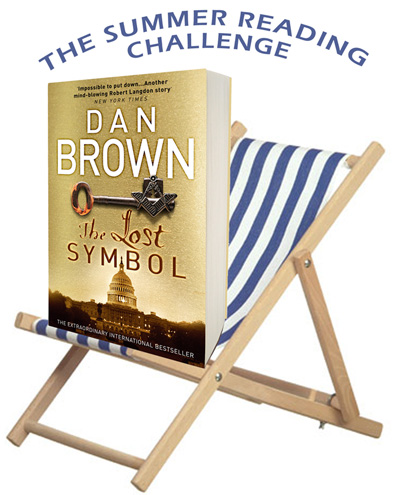 My second choice for the Great Transworld Crime Caper, and one that was always going to be on my list. I enjoyed Christ Fowler’s seventh Bryant & May mystery last year, and was interested to find out what the earlier ones were like. Now I’ve gone back to the beginning with Full Dark House and… well, perhaps I’m just being difficult, but now I wonder what it would have been like had I read this one first!
My second choice for the Great Transworld Crime Caper, and one that was always going to be on my list. I enjoyed Christ Fowler’s seventh Bryant & May mystery last year, and was interested to find out what the earlier ones were like. Now I’ve gone back to the beginning with Full Dark House and… well, perhaps I’m just being difficult, but now I wonder what it would have been like had I read this one first!
But there is a sense in which reading the first book out of order makes a difference to how one perceives it, because Full Dark House begins with Arthur Bryant apparently dying in an explosion that destroys the offices of the Peculiar Crimes Unit. Except there are more books (set in the present day) featuring Bryant & May and the PCU following on from this, so something more than meets the eye must be going on. Knowing this meant that a certain amount of suspense was inevitably lost to me, or at least turned into something else. This was also, of course, the book that had to introduce the characters of Bryant & May, and establish their partnership – but I already knew them from Bryant & May On the Loose, and felt that I didn’t appreciate all this as much as I might have. Of course, it’s impossible to say; but it does highlight how my opinion of this novel might be affected simply by what I’ve read previously.
The main plot of Full Dark House takes place not in the present day, but at the time of the Blitz, when the rational, nineteen-year-old John May joins the PCU, partnering with Bryant – three years his senior, and of a mindset much more befitting the Golden Age of detective fiction, seeking elaborate and fanciful explanations that draw on obscure knowledge. The two investigate a series of strange murders in a London theatre which is preparing to stage a production of Orpheus in the Underworld. The cast are being picked off one by one; does it have anything to do with the faceless figure rumoured to haunt the building?
One of the things that struck me most about Bryant & May On the Loose last year was the interplay between the Golden-Age and more modern styles of detection (as exemplified by the contrasting approaches of the two protagonists): it wasn’t a case of one triumphing over the other; both were given their chance to shine. It’s the same in Full Dark House: appropriately enough for the time and place (though Bryant fears the time of Holmesian detection has passed, wartime London is presented as somewhere that could still believe in the extraordinary, because the times were extraordinary; and the theatre itself is a kind of luminal space between the outside world and the inner ‘reality’ of the stage), resolving the mystery requires a combination of both approaches. Once again, I’m intrigued by Fowler’s series, and will be reading more.
Links
Full Dark House blogged elsewhere: Fleur Fisher; Ms Bookish; The Book Jotter; Mel’s Random Reviews.
 On to my third choice for the
On to my third choice for the 
Recent Comments